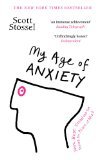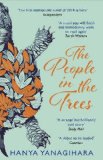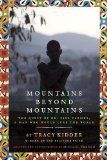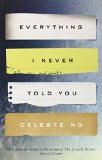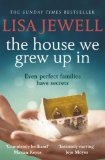The Wellcome Prize celebrates the best new books that engage with some aspect of medicine, health or illness. Last year the prize was awarded to Far From the Tree by Andrew Solomon, one of the most impressive books I’ve ever read. This year I decided to try the entire shortlist and I’ve been rewarded with a diverse range of titles; dealing with subjects as different as brain surgery and evolution.
The shortlist:
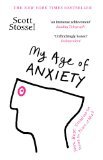
Five words from the blurb: fear, stress, mental, health, research
This book contained a wealth of knowledge on anxiety. Scott Stossel battles with crippling anxiety and in an effort to understand his condition he compiled medical research and historical information about a wide range of sufferers. The overall structure wasn’t quite right, but I think this will be an important reference book for many years to come.
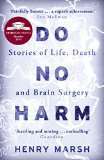
Five words from the blurb: brain, operate, pressures, dilemma, lives
Henry Marsh is a neurosurgeon and this book explains what life is like for a man performing dangerous operations on a daily basis. It vividly explains the pressures faced by a surgeon; beautifully describing both the guilt felt when procedures go wrong and the pride when lives are saved. I found it slightly too technical in places, but I appreciated the insight into this fascinating subject.
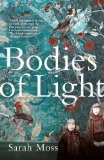
Five words from the blurb: approval, mother, student, medicine, suffrage
Bodies of Light is set 19th century Manchester and follows Ally, one of the first female students to study medicine at London university. It contains a wealth of historical information and shows the shocking way women in society were treated back then. Unfortunately I found it lacked the emotional engagement of her earlier novels, but it is a must-read for anyone interested in the development of women’s rights.
.
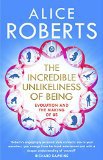
Five words from the blurb: evolution, humans, embryo, extraordinary, development
The Incredible Unlikeliness of Being is a very readable account of our development from an embryo into a fully-functioning adult. Much of the information was familiar to me, but there were enough engaging side-stories to keep me entertained. This book doesn’t contain anything ground-breaking, but is a useful introduction to human biology.
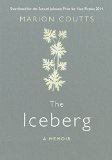
Five words from the blurb: tumor, husband, grief, support, family
The Iceberg contains some of the most powerful descriptions of grief I’ve ever read. Marion Coutts explains what life was like in the 18 months between her husband’s diagnosis of a brain tumor and his untimely death. The writing was outstanding, but it was so vivid I felt I was reliving her pain. I found it traumatising to read, but I admired the honesty and emotional power of the writing.
.
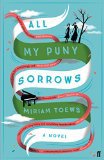
Five words from the blurb: sisters, different, depressed, happy, lives
All My Puny Sorrows is a very well written book, as proved by its inclusion on the Folio shortlist. It beautifully describes a family trying to cope with depression and suicide; showing how strong the bonds of love within a family can be. It was too melancholy for me, but I can see why many admire the sensitive way this difficult subject was handled.
Who Will Win the 2015 Wellcome Book Prize?
I wouldn’t be completely surprised to see any of the shortlist win, as they all have something special about them. All My Puny Sorrows contains the most accomplished writing; whilst My Age of Anxiety will probably be the most useful of the books in years to come. But for me the winner is a difficult choice between two books: The Iceberg and Do No Harm.
The Iceberg has an emotional power I haven’t come across before. Books like The Son by Michel Rostain have come close, but I don’t think I’ve ever found a book too difficult to read because of the volume of tears in my eyes! I couldn’t even finish the book as I was grieving for a man I’d never even met. If you want a masterclass in emotional writing then this has to be top of your list!
Do No Harm was the most interesting book on the list. It made me think about the brain in a different way and gave me a new-found respect for these ground-breaking surgeons. Parts of it went over my head and it occasionally felt a bit repetitive, but I think this is just a reflection of a surgeon’s life and should be forgiven.
So, head or heart?!!
In the end I have to let the head win. Do No Harm is an impressive book. The skill and emotional strength of neurosurgeons should be celebrated and I hope Henry Marsh picks up the Wellcome Book Prize tomorrow.

Who do you think should win the Wellcome Book Prize?
has just won the 2015 Wellcome Book Prize. It is a worthy winner as it contains some of the most powerful writing I’ve ever read. If you have the emotional strength to become immersed in the lives of a family dealing with a terminal illness then I highly recommend this book – but be prepared to experience grief and emotional turmoil.


